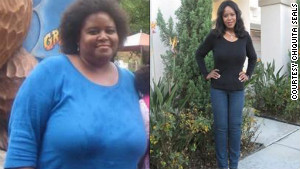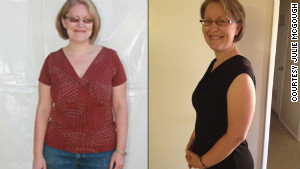So this week I ran across this insightful and way too close to home article published in the March issue of
. This might be a touch heavy for a Saturday read... but very real and worth it.
, the title and literal translation of what this story is about shook me hard this week. I am so thankful Runner's World published this. Eating disorders and disordered eating have been apart of my life in MANY different ways.
I struggled in Middle/High Schools with my "off limit foods", friends with eating disorders and my family runs ram-pet (myself included) with emotional eaters.Then I went to college and became an Division I athlete.... I wasn't our fastest runner (and I wasn't our slowest)... but I had a hard time focusing on speed and time... hell, all I cared about 85% of the time was that I wasn't the skinniest athlete on the team or the department and THAT'S what motivated me to show up to practice every day! I roll my eyes in disgust at these thoughts now... but they were
with them. I know I wasn't alone in these struggles. On my team alone... the men and women's teams both had problems. I know this for certain because it was the first time in my life I had ever heard a group of young men, my age, discussing their weight, "pinching an inch" (of skin) and completely believing if they lost 5# they'd shave a few minutes off their time. These were some of the fittest men I had ever met too! Not one without a rock-hard-six-pack, extra-trim thighs, great arms and likely -2% body-fat already. I've never forgotten it. Some of us were worse than others, but I am convinced that many of my teammates (and those from other teams too) would agree with me on this.
Despite my struggles then and now with disordered eating (because I wouldn't say I ever had a full blow eating disorder) and I'd say after the broken hip part of my life, compulsive exercising, this story really touched me on so many levels. I am thankful I have found a better balance in my dietary lifestyle. A lifestyle that I do believe is healthy. I am thankful for those I love who have struggled with eating disorders seeking help, making changes and finding balance again (no matter how hard) with food. For those I love who continue to struggle with eating disorders, I hope that this article speaks to you on some level and offers some encouragement to seek help and wellness in your life.
Enjoy friends, family and fellow runners. Happy fueling. :)
The scale reads 158.2. Up a pound from yesterday. And after a run, no less. Son of a bitch. I step into the shower and scrub the dirt off my calves and ankles, the sweat from my face, from behind my ears. I know it's irrational, but a germ of a thought percolates in my brain:Maybe, just maybe, collectively erasing these micrograms from my skin will bring me into 157-pound territory. I towel off and step back on the scale. I'm running my first marathon next month, and at five-foot-eight, I want to toe the line at 155 pounds, preferably 153. I'm hellbent on breaking four hours. I look down. Dammit. Same unfeeling numbers. Okay, scratch tomorrow's rest day. Later, as I pack my lunch–debating between one or two mini wheat bagels to go with a wedge of light cream cheese and an apple–I pray it's nobody's birthday at the office today. Cake is the devil.
Little did I know that nutritionists had a name for this swirl of thinking: disordered eating. At the time, I'd never heard the term. Eating disorders I knew about, but I was hardly a skeletal anorexic, nor did I purge my meals. I was simply a dedicated runner with what I considered serious willpower. Besides, didn't a marathon demand Spartan discipline?
When I'd mailed in my registration, I was 39 years old with a daddy belly and a double chin. I'd been running for six years, mostly five-mile stretches. I hovered just below 175 pounds, was prone to shinsplints and knee pain, and ran on dirt wherever I could find it. Obviously, 26.2 miles of asphalt could be a problem. The thought of being branded a DNF was my ultimate nightmare. But somewhere along the way, I'd heard that I'd run about two seconds faster per mile for every pound I lost. This bit of information–accurate or not–radically changed my diet.
For the first time in my life, I scrutinized nutrition labels. I parted company with meat and learned to love tofu and soy milk. For breakfast, it was fruits and fat-free yogurt. I'd begin my small dinners with an appetizer of boiled broccoli. No desserts. As my weekly miles piled up, my waistline started shrinking. I announced each lost pound to my wife like a sniper taking out another enemy soldier. The flattened landscape of my belly made me swoon. Food became one of my mind's favorite topics. I got off on the sensation of my stomach grumbling and learned to fall asleep hungry. But god forbid the scale go up. If it did, I seethed.
"The more competitive people are, even if they're just competitive with themselves, the more likely they are to have the kind of extremist thinking that can lead to disordered eating patterns," says Patricia Kaminski, associate professor of psychology at the University of North Texas, who's helped many people with eating disorders. "'If running five miles is going to help me train well, then running 10 is better. If a 1,200-calorie diet is good to help me lose weight, then a 500-calorie diet must be great.'"
Disordered eating differs from an eating disorder in that food intake isn't manipulated to deal with underlying issues of depression, anxiety, self-esteem, and control. The most common forms of eating disorders–anorexia (self-starvation) and bulimia (binging and purging)–are serious psychiatric illnesses, with significant physical consequences, and can be fatal. Disordered eating, on the other hand, refers to less-severe abnormal behaviors: eliminating food groups from your diet; regularly replacing meals with energy bars or coffee drinks; excessive weighing and calorie-counting; and tacking on extra miles as punishment for, say a cheeseburger the night before. Often, the regimen includes compulsive exercising like hitting the bike after an 18-miler.
The condition is far more common among female runners, mirroring the trend seen in the general public. It's estimated that three out of four American women between ages 25 and 45 practice disordered eating, according to a University of North Carolina at Chapel Hill study. A 2009 report in the Journal of American College Health showed more than a quarter of female college athletes exhibit disordered eating patterns. And in surveys of collegiate athletes, some 55 percent of women tell researchers they experience pressure (both external and self-imposed) to achieve a certain weight, and 43 percent say they're "terrified" of becoming too heavy. Between two and three percent of female college athletes have a diagnosed eating disorder, which is about the same for the general population. Men who compete in sports where body shape and size are important also are at higher risk for disordered eating.
The costs can be profound: Prolonged disordered eating can lead to anemia; loss of muscle strength, endurance, and coordination; more frequent injuries, including stress fractures; longer recovery time after intense workouts and races; anxiety; and fertility issues in women. The most worrisome consequence, however, is the onset of a full-blown eating disorder.
Leslie Bonci, R.D., director of sports nutrition at Pittsburgh's UPMC Center for Sports Medicine, says the most common sign of disordered eating is when food choices become about what not to eat.
"A lot of people have their good-food list and their bad-food list," Bonci says. "Nothing high in fat, nothing fried. They'll eat only organic, only local, won't touch anything processed. They might start to avoid social situations because they don't know what the food will be."
Obviously, runners, and especially marathoners, demand greater nutrition than sofa spuds. An endurance athlete's ideal fuel is glycogen, carbohydrates stored in the muscles and liver. A low-carb lifestyle is clearly counterproductive. When glycogen stores are low, protein, which is essential for muscle growth and repair, may be robbed for energy. Zinc and vitamins A, B6, and E are important for the immune system and bone health, but are found in red meat, nuts, and dairy–often seen as kryptonite by fat-phobes.
"When you look at a lot of media, the message is everybody's on a diet, everybody needs to lose weight or restrict," says Colorado-based psychotherapist and former U.S. marathon champion Jane Welzel. "Instead of how do you support your lifestyle through nutrition, the message is reduce carbs and fats, or this has a high glycemic index, or don't eat too many bananas. It's the sound bites, the headlines, that grab attention. Then people add it to their list of rules. It's totally out of context for what they need to do to support their level of training."
While not all disordered eating leads to an eating disorder, almost all eating disorders start as disordered eating, so it can be scary territory for a runner, particularly an emotionally vulnerable one or for someone dealing with significant stress. Manipulating one's food and body offers a sense of control and perfection, a substitute for happiness that may be absent when they're not laced in running shoes.
"People lose weight and run faster," says Bonci. "But for some it becomes like this addictive drug. It's a really a fine line between healthy and unhealthy weight loss, and there are a lot of people who straddle that line day in and day out."
As part of my marathon training, I wanted to run with the cross-country team at Boston University, where I work. I was a nine-minute miler on a good day and was hoping to pick up some speed tips. I e-mailed David Proctor, the BU captain. The previous year, Proctor had broken the four-minute mile, the first Terrier to do so. He knew fast.
A week later, I was hauling ass along the banks of the Charles River with six tall, lean dudes almost 20 years my junior. They took pity on me and ran a 7:30-per-mile pace instead of their usual sub-6:00.
I admired the way Proctor moved, limbs etched with muscle, loose yet under control. I felt the swell of a runner crush.
But at the time, I'd no idea the amiable Briton was just two months past his second bout with anorexia, one of an estimated 1 million men in America with an eating disorder. All in the name of speed.
A junior U.K. champion in the 800 meters, Proctor was recruited to BU on scholarship. Tall and naturally slim, after touching down in Boston in fall 2004, he embodied the "freshman 15," and then some. By mid-November, his weight had gone from 145 to more than 160 pounds. One day, Proctor's coach ribbed him about his affection for American cuisine.
"It was totally innocent, the way guys joke with each other," Proctor later told me. "But then I thought about it. My clothes don't fit the way they used to. And once I weighed myself and processed it, I felt like a failure. If putting on weight makes you slower, then I'm letting the team down. I'm failing at my job."
So just like that, Proctor all but cut out breakfast and lunch–disordered eating. "Any food that had very low to zero fat got a check mark," he says. "Anything that had more than one or two grams of fat per serving was out. Fruit was on the list until I found it had really high sugar."
He worked himself down to 500 calories a day, and within a couple of weeks, he'd shed almost 20 pounds. Not for a second did he see this as abnormal. "Track is so focused on numbers; you run your repetitions at this time, your recovery at this time," he says. "This just seemed like an extension of that."
Proctor was determined to break a school record, and every hunger pang confirmed his dedication to that goal. Soon, he was seeing the shaved-down numbers on his stopwatch. Like a greyhound chasing a mechanical rabbit, he kept pursuing that next ounce, that next half pound. By mid-December, the six-foot freshman stood a gaunt 133 pounds. Still, he scrutinized his reflection pinching a quarter inch of skin, convinced it was fat.
"I was on the scale every hour to see if something changed," he says. "If I went to pee, I'd weigh myself before and after."
After passing out during a run, not a morsel touching his lips for three days (punishment for gorging at Christmas), he met with a nutritionist. Not to add the fats and proteins his body craved, but for tips on how to lose weight without fainting again. He was a full-blown anorexic.
Paradoxically, he clocked his best 800, 1:50:54, that winter. And it was just before Easter when he dipped to 129 pounds–after a long morning run, with no food or drink in his system. It was a moment of glory, almost ecstasy. Still, the runner had rules. No dinner until six, not a moment before. He was famished and had hours to go. He lay on his bed to pass the time.
"I felt nauseous because I was so dehydrated," he says. "It was disgusting. I lay there and it got to be 5:50, and I was praying for the clock to hurry up and tick over to six so I could go down for dinner."
Then he had a moment of clarity. "I don't know where it came from or why I suddenly realized it, but I just thought, This is stupid, the difference between ten-of-six and six. You're waiting, eyes fixed on the clock, almost passing out you're so tired."
While the doors to some of Proctor's darker rooms would remain closed–he admits to trust issues and a "desperate desire" to achieve greatness–that spring, a BU sports nutritionist and sports psychology professor helped the middle-distance star grasp the concept of the body as a machine that needed proper fueling to run efficiently. Slowly, he began to eat more and eased up on his food rules.
Two seasons later, Proctor broke a school record as part of a medley team. Then came his crowning achievement–breaking the four-minute mile his junior year (3:59.14), capturing the second-fastest college time in the country that year. During his balls-out final sprint, he weighed 154 pounds, just eight pounds less than the all-time high that started it all. But like many anorexics, he would relapse several times before moving into a period of sustained recovery.
"I still define myself by my successes and failures," says Proctor, who is back in England working at a hospital and training for the 1500 meters in the U.K.'s Olympic Trials in June. "But I look for them elsewhere, not just on the track."
While I wouldn't claim any records, I finished the marathon without walking, not even at the fluid stations, my shirt a bib of spilled Gatorade. I broke the tape at 4:20, a bit of a disappointment considering the rigors of my training. As I'd slogged up the hilly course, my feet feeling laced in concrete blocks, more than once I wondered whether there had been too much oil in my prerace pasta.
But curiously, after staggering through the crowd of finishers, a medal bouncing against my salt-squiggled shirt, all I wanted was a burger. Just like that, I stopped counting fat grams and calories and watched the pounds start checking back in. I ran a second marathon five weeks later, coasting on my earlier training, and shaved almost 16 minutes off my time. I was elated, but also confused. Weren't weight and speed inextricably linked?
"Sometimes a runner will have a breakthrough, and they'll credit it to losing weight when it might be the past six months of training or a certain maturity they've had with their running," says Welzel, the marathon champ and psychotherapist. "The thing that's identifiable is that they lost five or 10 pounds, but that may have just been a small piece."
There could be something else at play beneath the surface of cutting calories and shaving seconds, says Kara Bazzi, the clinical director of Opal, a Seattle eating-disorders clinic. "Many athletes with disordered eating wouldn't want to admit this, but there's this sense of self-righteousness–they can accomplish a six-minute-mile pace or 20-mile run while others can't. There's part of them that's threatened to be average. That's a strong force to reckon with, that mentality."
Bazzi speaks from experience, as a runner whose personal struggle with disordered eating began her freshman year at the University of Washington. By midseason, she was one of the fastest on her team, thanks to drastic cuts in her diet. "I was getting lighter, then faster," says Bazzi. "I saw big results. You can run pretty well for about a year under a highly restrictive state, but then your body breaks down." In fact, a stress fracture ended Bazzi's competitive career, her bones stripped of essential nutrients.
Bazzi and other experts interviewed agree that the volume on education and awareness of disordered eating needs to be cranked up in all sectors, from the locker room to the running club to the media. Welzel also says she realizes the sway she holds as an elite runner. Once, while she was eating fries and hoisting a beer, a recreational runner was taken aback and said to her, "I thought you guys just ate lettuce."
"If we're out there putting food in categories and restricting, then they're going to hear that's what you have to do to be a better runner," she says. "Hard workouts need to be replenished. Healthy eating isn't eating less."
Even though I was back on steak and fries, my marathon training had left some sticky residue. I still felt flashes of anger when my Garmin displayed anything above a 9:15 pace. I'd instantly analyze everything I ate the day before and maybe hurl a few curse words at myself. Why had I convinced myself that stopping to walk during a race, even for fluids, was for pansies? Why would not breaking four hours translate to failure?
I began to wonder whether there were unresolved personal issues that I'd allowed the digits, the food rules, and the rigid routine, to tamp down. I was always hard on myself, perhaps threatened to be average as Bazzi said. I loved running, so why did I strike out with one arm whipping my own back? Who was I doing this for anyway?
As I found myself registering for more marathons, I vowed to look in the mirror with a renewed consciousness and to leave the Garmin at home every once in a while. Sure, it was strange at first. I felt a bit unmoored, a bit aimless. But I became more aware of the feel of the run and started looking around like I used to before I began pinning on bib numbers. With the taste of sweat on my lips, I understood the obsessive-ness, and the yielding David Proctor was talking about. More and more, I run for the joy rather than the PR, to hear not the numbers in my ears, but the wind.
Find out if your relationship with food is healthy or hazardous by taking our true-false quiz atrunnersworld.com/yourfoodandyou.
Caleb Daniloff has received multiple awards for his writing, including the Ralph Nading Hill Jr. Literary Prize, several National CASE awards, and has been nominated for a Pushcart Prize. Caleb's first book, Running Ransom Road: Confronting the Past One Marathon at a Time, a memoir about running as a sobriety tool, will be published by Houghton Mifflin Harcourt in Fall, 2012.












